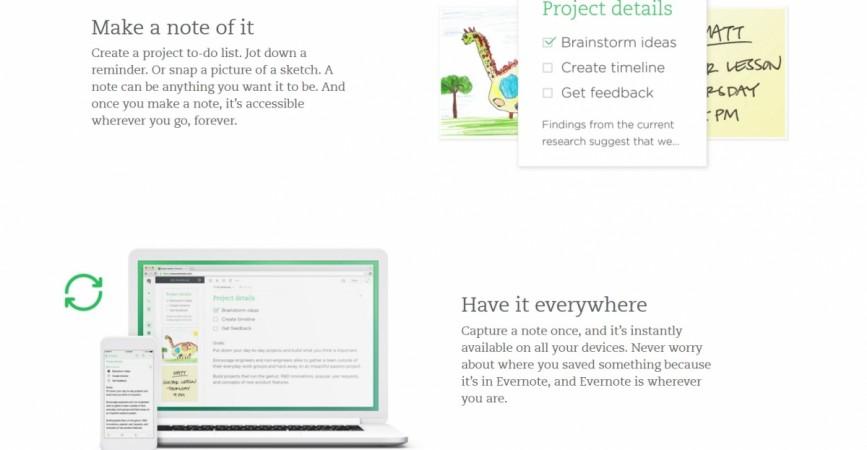
UPDATE: Following backlash from Evernote users over its plan to let certain employees have access to the notes, the company has decided to scrap the plan.
"After receiving a lot of customer feedback expressing concerns about our upcoming Privacy Policy changes over the past few days, Evernote is reaffirming its commitment to keep privacy at the center of what we do. As a result, we will not implement the previously announced Privacy Policy changes that were scheduled to go into effect January 23, 2017," Evernote CEO Chris O'Neill said in a statement.
"Instead, in the coming months we will be revising our existing Privacy Policy to address our customers' concerns, reinforce that their data remains private by default, and confirm the trust they have placed in Evernote is well founded. In addition, we will make machine learning technologies available to our users, but no employees will be reading note content as part of this process unless users opt in. We will invite Evernote customers to help us build a better product by joining the program," he added.
Original Story
If you are a user of popular note-taking app Evernote, then there is every possibility that you would feel as if your digital privacy has gone for a toss as the application's privacy policies have now been modified. As per the new modifications, your notes could now go away from the purview of machine-reading and would be read by "eligible" Evernote employees. This means that your content would now be visible to certain employees at the company and Evernote is terming this new exercise as an "enhancement" towards development of the note-taking service as a whole.
However, the machine-reading of user data will still be employed but there would be cases where human review of stored data would be completely inevitable and would, therefore, lead to people physically getting access to your notes stored within the Evernote app.
How will my content be read by Evernote employees?
Folks at Evernote state that "eligible" employees are subjected to thorough background screening, along with being offered data/privacy training to keep themselves abreast of latest digital privacy related developments. After all necessary training, only "limited" Evernote folks are allowed to access stored user information. The number of such people will also be kept to a bare minimum.
"This is primarily to make sure that our machine learning technologies are working correctly, in order to surface the most relevant content and features to you," states Evernote in an official blog post.
Also, the note-taking app claims that it would employ suitable security mechanisms to prevent humans from hacking the data that is already transmitted to its "eligible" employees.
Fundamentally, the latest privacy changes are done (according to Evernote) in order to dish out the most relevant content and for feature-set enhancement.
Do remember that the new changes would come into effect from January 23, 2017, and you will be notified about the changes via an official email most probably.
I do not want anybody seeing my data, can I opt-out?
Yes, you can opt out, but Evernote will not offer you customised features and you will also be blocked from being intimated about the latest developments. In case you require to opt out, uncheck the "Allow Evernote to use my date to improve my experience" option within your account.
However, choosing to do the above will only block machine reading; you cannot opt out from having Evernote employees accessing/reading your stored stuff. Nonetheless, you can encrypt your stored data in case you use Evernote PC/Mac desktop applications.
Finally, Evernote suggest that you can also choose to completely delete your account in case you think the new privacy policy changes would be too much to handle. To delete your account, follow these steps. The company claims that its latest modifications would not violate the 3 data protection laws.




![Ultrahuman launches Ring PRO, free charging case with more than just power and Jade AI [details] Ultrahuman launches Ring PRO, free charging case with more than just power and Jade AI [details]](https://data1.ibtimes.co.in/en/full/829151/ultrahuman-launches-ring-pro-free-charging-case-more-just-power-jade-ai-details.png?w=220&h=135&l=50&t=40)





![Ultrahuman launches Ring PRO, free charging case with more than just power and Jade AI [details]](https://data1.ibtimes.co.in/en/full/829151/ultrahuman-launches-ring-pro-free-charging-case-more-just-power-jade-ai-details.png?w=220&h=135)
